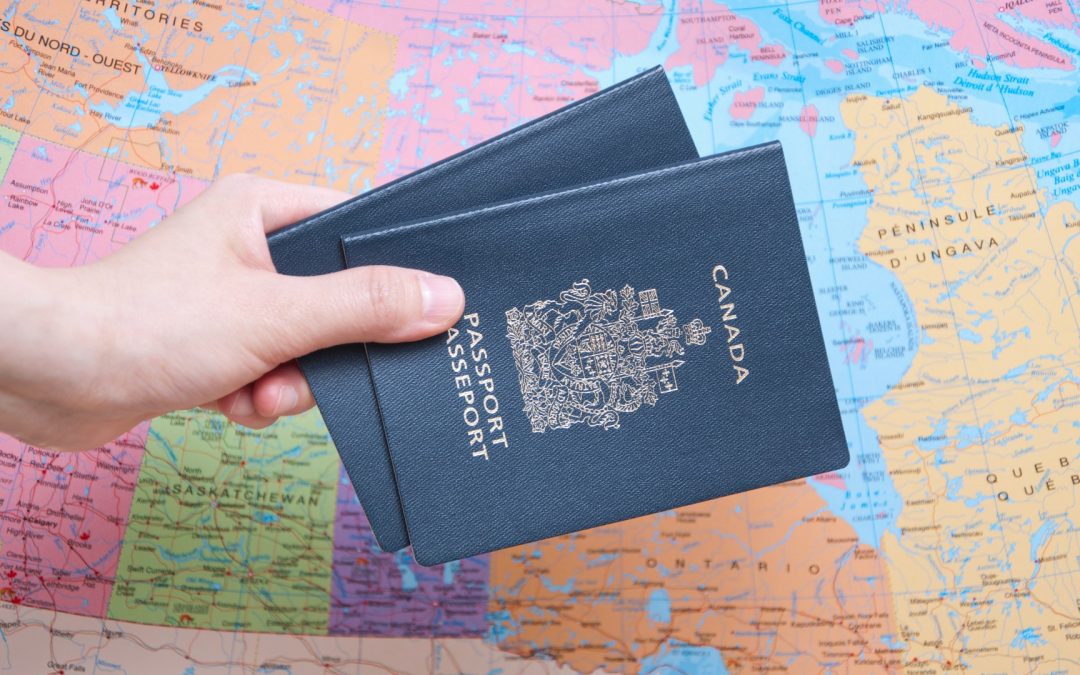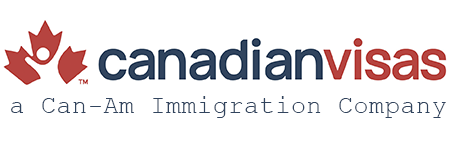
May 8, 2024 | Blog, Immigrate to Canada, Immigration, Immigration Reform, In the News, New Laws
On May 7, 2024, Immigration, Refugees and Citizenship Canada (IRCC) announced a critical policy change to support Hong Kong permanent residence (PR) applicants facing delays. Immigration Minister Marc Miller unveiled a new temporary public policy that will grant open work permits to eligible Hong Kong nationals awaiting a final decision on their PR applications. This policy, effective May 27, 2024, offers much-needed security and opportunity for those seeking to build a permanent life in Canada.
Understanding the Backlog and Its Impact
In February 2021, Canada established a special pathway to permanent residency for Hong Kong nationals in response to ongoing political and social developments in the region. This pathway, offered through Streams A (in-Canada graduates) and B (Canadian work experience), proved highly popular. However, the surge in applications has unfortunately resulted in extended processing times. Many applicants now face the risk of their temporary work or study permits expiring before receiving a final decision on their PR applications.
This situation could leave them in precarious positions, potentially impacting their ability to work legally, access healthcare, and maintain their established lives in Canada.
The New Open Work Permit Policy: A Bridge to Permanent Residency
The new temporary public policy directly addresses this concern. Here’s a breakdown of the key points:
-
Eligibility:
- Applicants must have submitted a permanent residence application under Stream A or B of the special Hong Kong PR pathway.
- They must have held a valid work or study permit in Canada for at least three years before the IRCC received their PR application.
-
Effective Date:
- The policy takes effect on May 27, 2024, and will remain in place for five years.
-
Benefits:
- Eligible applicants can obtain an open work permit, allowing them to work for any employer in Canada.
- This policy provides a crucial bridge, enabling applicants to continue working legally in Canada while their PR applications are processed.
-
Restoring Expired Status:
- The policy offers a unique advantage. Applicants whose temporary status expired within 90 days before applying for the new open work permit can regain their legal status in Canada.
A Continuation of Canadian Support for Hong Kong
This new policy builds upon Canada’s ongoing commitment to supporting Hong Kong nationals. Here’s a timeline of previous initiatives:
- February 8, 2021: Introduction of the special permanent residence pathway with Streams A and B for graduates and those with Canadian work experience.
- June 1, 2021: Opening of applications for the special Hong Kong PR pathway.
- August 15, 2023: Removal of the education requirement for Stream B (Canadian work experience), making it easier for Hong Kong residents with work experience to qualify.
- As of April 30, 2023: Over 3,000 Hong Kong residents had successfully transitioned to permanent residency through these streams.
The new open work permit policy demonstrates Canada’s dedication to ensuring a smooth transition for Hong Kong nationals seeking permanent residency. This policy offers stability and empowers these individuals to continue contributing to Canada’s social and economic fabric.
We Want to Hear From You!
- Do you have friends or family members who might benefit from this new policy? Share this article to help spread the word.
- Have you navigated the Canadian PR process? Let us know your thoughts and experiences in the comments below.
- What other measures could Canada take to support the integration of Hong Kong nationals? Share your ideas in the comments!

https://consultations.canadianvisas.com/canadianvisas-generalconsultation

May 8, 2024 | Blog, Immigrate to Canada, Immigration, Immigration Reform, In the News, New Laws
Canadian immigration hopefuls in the Express Entry pool need to be aware of recent updates to the proof of funds requirements. Immigration, Refugees and Citizenship Canada (IRCC) has adjusted the minimum settlement fund amounts for 2024, impacting applicants entering the pool or already waiting for an Invitation to Apply (ITA).
What is Express Entry Proof of Funds?
Express Entry is a system used by Immigration, Refugees and Citizenship Canada (IRCC) to manage applications for permanent residence from skilled workers. Proof of funds is a financial document demonstrating that you have enough money to support yourself and your family after arriving in Canada.
Who Needs Proof of Funds?
The proof of funds requirement applies to specific Express Entry programs. Those applying under the Federal Skilled Worker Program (FSWP) or the Federal Skilled Trades Program (FSTP) will need to demonstrate they have sufficient funds to settle in Canada. However, there are exceptions. Applicants with a valid job offer and work permit for Canada in either of these programs are exempt from the proof of funds requirement. Additionally, the Canadian Experience Class (CEC) program does not require proof of funds for any applicants.
Calculating Settlement Funds
The amount of settlement funds required depends on the size of your family unit. This includes the applicant, their spouse or common-law partner (if applicable), and any dependent children (of both the applicant and their spouse, if applicable). Even if some family members are not immigrating with you, they must still be factored into the calculation.
Here’s a breakdown of the new minimums effective May 28, 2024 (compared to the previous amounts):
| Number of family members |
New Settlement Funds requirement is effective May 28 (in Canadian dollars) |
Old Funds Required (in Canadian dollars) |
| 1 |
$14,690 |
$13,757 |
| 2 |
$18,288 |
$17,127 |
| 3 |
$22,483 |
$21,055 |
| 4 |
$27,297 |
$25,564 |
| 5 |
$30,690 |
$28,994 |
| 6 |
$34,917 |
$32,700 |
| 7 |
$38,875 |
$36,407 |
| If there are more than 7 people, for each additional family member |
$3,958 |
$3,706 |
Updating Your Express Entry Profile
Express Entry candidates currently in the pool with applications requiring proof of funds need to update their profiles with the new settlement fund amounts by May 27, 2024, to avoid any delays. Updating your profile does not affect your application’s original submission date.
Acceptable Proof of Funds
Acceptable proof of funds comes in the form of official letters from your bank(s) or other financial institutions. These letters, printed on the institution’s letterhead, must include:
- Your name and contact information
- Details of all your current bank and investment accounts
- Outstanding debts (loans, credit cards, etc.)
- Account numbers and opening dates
- Current account balances and average balances for the past six months
- Bank or institution contact details (address, phone number, email)
Considering Express Entry?
These changes highlight the importance of financial planning for your Canadian immigration journey. Ensure you meet the current settlement fund requirements and gather the necessary documentation well in advance. Researching job opportunities and exploring potential job offers with work permits can also be beneficial, especially if they exempt you from the proof-of-funds requirement for FSWP or FSTP.

May 8, 2024 | Blog, Immigrate to Canada, Immigration, Immigration Reform, In the News, New Laws
On May 8th, 2024, Immigration, Refugees and Citizenship Canada (IRCC) announced approval of a request from Manitoba to extend the temporary resident status of potential provincial nominees. This move directly benefits around 6,700 individuals, primarily recent graduates holding post-graduation work permits, who are currently part of the Manitoba Skilled Worker Provincial Nominee Program‘s Expression of Interest pool.
Filling the Gap: Skilled Workers and Manitoba’s Growth
These skilled workers play a crucial role in Manitoba’s economic landscape. Many occupy essential positions that contribute directly to the province’s ongoing growth and stability. Furthermore, their presence enriches Manitoba’s cultural tapestry, fostering a more diverse and vibrant community.
A Bridge to Permanent Residency
The temporary resident status extension serves as a bridge for these individuals, allowing them to continue working in Manitoba while their Provincial Nominee Program applications are processed. The expectation is that within two years, these eligible foreign nationals will receive official provincial nominations, paving the way for permanent residency in Canada.
IRCC’s Balancing Act: Temporary vs. Permanent Residents
This decision by IRCC reflects their commitment to achieving a stable balance in Canada’s immigration system. While acknowledging the value of temporary residents, IRCC prioritizes transitioning a significant portion of this population towards permanent residency. This approach aims to address the growing demand for skilled workers in various regions while also reducing the overall number of temporary residents in Canada.
While this specific measure applies to Manitoba, IRCC has signaled openness to exploring similar options with other provinces and territories. This collaborative approach could address the unique labor market challenges faced by different regions across Canada, while also facilitating a smoother transition for a greater number of skilled temporary residents towards permanent residency.
Quotes
“Supporting Manitoba’s skilled workers will help the province meet their regional economic immigration goals. This measure supports our priority of transitioning a greater portion of current temporary residents to permanent residence and meeting local labour market needs. We remain open to collaborating with other provinces to transition more temporary residents to permanent residence, ensuring a strong and diverse workforce that has the skills, education and work experience to grow Canada’s economy.” – Marc Miller, Minister of Immigration, Refugees and Citizenship
“Manitoba’s future success depends on supporting new Canadians who have chosen to make our province their home. By working together to extend temporary resident status for potential nominees, we are taking proactive steps to retain the needed skills and knowledge to build a strong and diverse Manitoba workforce.” – Malaya Marcelino, Minister of Labour and Immigration
Quick facts
- Immigration accounts for almost 100% of Canada’s labour force growth, and, by 2032, it is projected to account for 100% of Canada’s population growth.
- In 2022, about 20% of all permanent resident admissions came through the Provincial Nominee Program, directly supporting provinces and territories in meeting their labour market needs.
- In 2023, the Provincial Nominee Program represents nearly 40% of planned economic admissions, making it the largest economic immigration program identified under the Immigration Levels Plan.
- In 2023, nearly 157,000 people transitioned from worker status to permanent residence nationally.
- For Manitoba specifically, more than 10,000 people transitioned from worker status to permanent residence in 2023.
What Do You Think?
This news has sparked discussions about the future of Canada’s immigration system. Is this a positive step towards addressing labor shortages in various provinces?How can the balance between temporary and permanent residents be further optimized? Should other provinces pursue similar extensions for their skilled worker pools?
Share your thoughts and opinions in the comments below!

May 1, 2024 | Blog, Immigrate to Canada, Immigration, Immigration Reform, In the News, New Laws
Canadians can now expect faster processing times for their adult passport renewals thanks to the introduction of automation technology. Announced in April 2024, this initiative by the Canadian government aims to improve efficiency and service delivery without compromising security.
What’s Changing?
The new system utilizes automated tools to assist passport officers in processing routine adult renewals. These tools act as a verification aid, cross-referencing application information against existing government records and the applicant’s previous passport. The technology can also flag potential issues that might require further review.
Key Benefits:
- Enhanced Efficiency: Automation streamlines the process, freeing up passport officers to focus on complex applications and first-time requests. This reduces wait times for renewals, particularly during peak seasons.
- Maintaining High Standards: While automation plays a supporting role, human oversight remains crucial. Passport officers retain final decision-making authority, ensuring applications are reviewed thoroughly and national security concerns are addressed.
- Accuracy and Consistency: Automation helps minimize human error in data entry and verification, leading to a more consistent and reliable review process.
- Reduced Processing Times: By automating routine tasks, the system aims to significantly reduce processing times for eligible applications. This translates to quicker passport renewals for Canadians with upcoming travel plans.
Important Considerations:
It’s important to note that this initiative is currently limited to adult passport renewals. New applications, renewals for children, and complex cases will still undergo a full manual review by a passport officer.
What Does This Mean for You?
If you’re a Canadian adult renewing your passport, you can expect a smoother and faster application process. Carefully review the information on your application to ensure accuracy, as any discrepancies might trigger a manual review.

May 1, 2024 | Blog, Immigrate to Canada, Immigration, Immigration Reform, In the News, New Laws
International graduates seeking permanent residency through the Quebec Experience Program (PEQ) will now need to demonstrate a stronger commitment to French under a newly revised policy. Announced in November 2023, the update to the PEQ’s Quebec Graduates stream takes effect on November 23, 2024, and introduces a mandatory French study requirement.
What is the Quebec Experience Program (PEQ)?
The PEQ is a popular immigration program designed to attract skilled workers who have already gained valuable experience in Quebec. It offers a streamlined pathway to permanent residency for graduates and temporary foreign workers who meet specific eligibility criteria. The program consists of two main streams:
- Quebec Experience Program – Temporary Foreign Worker: This stream caters to individuals who have acquired work experience in Quebec under a valid work permit.
- Quebec Experience Program – Quebec Graduates: This stream is specifically designed for international graduates from Quebec’s educational institutions.
The New French Language Requirement for Quebec Graduates
The updated policy for the Quebec Graduates stream emphasizes the importance of French language proficiency for successful integration into Quebec’s predominantly French-speaking society. To be eligible under the revised program, applicants must demonstrate that they have completed their studies in a French-dominant environment. This can be achieved through two pathways:
- Completion of an Eligible Program in French: Applicants can qualify by successfully completing a program of study where at least 75% of the courses or credits are delivered in French. This ensures a high level of exposure to the language throughout their academic journey.
- Three Years of Full-Time French Studies: Alternatively, applicants can demonstrate their French proficiency by presenting proof of having completed three or more years of full-time secondary or post-secondary studies entirely in French. This could include studies completed in Quebec or abroad in a French-language institution.
The Rationale Behind the Change
The Quebec government has emphasized that the new requirement aims to strengthen the French language skills of international graduates seeking permanent residency. By requiring them to have studied in a French-dominant environment, the government hopes to facilitate their integration into Quebec’s social and professional spheres.
Impact on International Students and Graduates
This update is likely to have a significant impact on international students considering pursuing their education in Quebec. The new requirement may incentivize students to choose programs with a higher percentage of French-language instruction. Additionally, international graduates who have not completed their studies primarily in French may need to consider additional language training to meet the new eligibility criteria.
What do you think?
Will the new French language requirement effectively promote French language skills and integration among international graduates? Do you see any potential challenges or benefits associated with this update? Let us know in the comments below.

May 1, 2024 | Blog, Immigrate to Canada, Immigration, Immigration Reform, In the News, New Laws
Canada’s labor market presented a puzzling picture in February 2024, according to Statistics Canada. While overall payroll employment dipped slightly month-over-month, it remained positive year-over-year. Simultaneously, job vacancies continued to climb, indicating a potential skills mismatch or ongoing economic uncertainties.
Payroll Employment Dips Slightly, But Upward Trend Remains
Canadian businesses shed 17,700 jobs in February, representing a modest decrease of 0.1% compared to January. However, this small decline shouldn’t overshadow the positive year-over-year trend. Payroll employment has grown by 154,700 positions since February 2023, reflecting a healthy increase of 0.9%. This suggests a gradual recovery from pandemic-related job losses, although the pace appears to be moderating.
Job Vacancies on the Rise, But Sectoral Shifts Emerge
The number of unfilled positions in Canada continued its upward trajectory in February. Job vacancies climbed by 21,800 (3.4%) compared to January, reaching 656,700. This signifies a persistent demand for skilled workers across various industries. However, a closer look reveals significant variations between sectors.
Several industries experienced a decline in payroll employment. Accommodation and food services, a sector heavily impacted by pandemic restrictions, witnessed a drop of 10,000 jobs (-0.8%). Manufacturing and retail trade also saw employment reductions. Conversely, public administration (+0.5%) and finance and insurance (+0.8%) reported job gains.
Vacancies Rise in Transportation and Finance, Fall in Hospitality
The trend in job vacancies mirrored the changes in payroll employment across sectors. Accommodation and food services, manufacturing, and retail trade all saw significant declines in open positions. This could be attributed to a combination of factors, including automation in certain sectors and employers filling existing vacancies.
On the other hand, vacancies rose notably in transportation and warehousing, alongside finance and insurance. This suggests a growing demand for skilled workers in logistics and financial services. Notably, British Columbia boasted the highest job vacancy rate at 4.3%, highlighting regional variations within the Canadian job market.
What Does This Mean?
Canada’s February jobs report paints a complex picture. While the overall employment trend remains positive, the decline in payroll employment alongside rising vacancies demands further analysis. Are employers struggling to find workers with the right skills? Or are there underlying economic uncertainties causing businesses to hold back on hiring?
Does the data suggest a skills gap, or are there other factors at play? Share your insights in the comments below.








 Useful Resources for Canada
Useful Resources for Canada
 Useful Resources for U.S.
Useful Resources for U.S.
 Our Local Immigration Services
Our Local Immigration Services